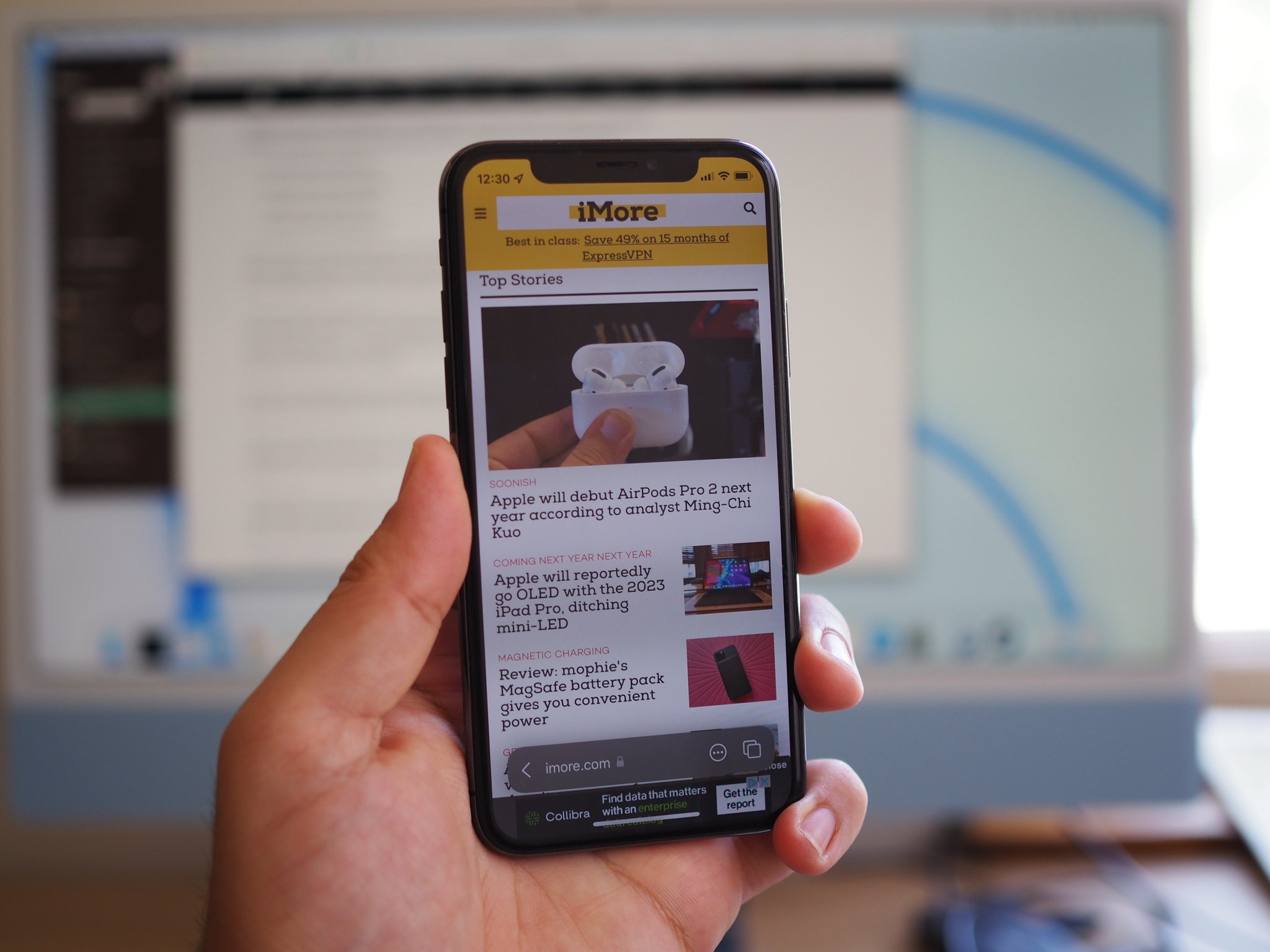EU carriers want to kill iCloud Private Relay over 'digital sovereignty' worries [Update]

What you need to know
- Some European carriers want iCloud Private Relay to be banned.
- Carriers claim iCloud Private Relay prevents them from managing their network.
Update, January 10 (9:20 pm ET): T-Mobile is blocking iCloud Private Relay for T-Mobile and Sprint customers in the United States.
Apple's iCloud Private Relay feature is designed to prevent anyone from snooping on what you're doing on the internet, but a number of European cellular carriers want it banned. They claim that iCloud Private Relay prevents them from properly managing their networks.
That's according to a Telegraph report, with carriers saying that the feature has "significant consequences in terms of undermining European digital sovereignty." Quite what that actually means isn't immediately obvious.
Here's what iCloud Private Relay actually is, according to our guide:
iCloud Private Relay can easily be mistaken for a Virtual Private Network (VPN), but in reality, it's much more limited than what a VPN service provides. iCloud Private Relay does hide your IP address like a VPN, but it doesn't fully spoof your location. In other words, you can't use iCloud Private Relay to fool Netflix into thinking you're in a different country. What it's designed to do, though, is encrypt all your connections not using HTTPS, hide your real IP address, and prevent anyone — even Apple — from knowing both who you are and where you're connecting to on the web. In short, Private Relay makes browsing the web in Safari on your iPhone and iPad a little more secure.
But despite being a VPN, European carriers including Vodafone, Telefonica, Orange, and T-Mobile say that the feature "will impair others to innovate and compete in downstream digital markets and may negatively impact operators' ability to efficiently manage telecommunication networks."
A joint letter signed by Vodafone, Telefonica, Orange and T-Mobile said: "Private relay purports to enhance users' privacy when connecting to and browsing the internet by encrypting and redirecting traffic ... thereby cutting off other networks and servers from accessing vital network data and metadata, including those operators in charge of the connectivity.
While it's true that VPN services also have the same impact, it's likely the carriers are concerned about iCloud Private Relay because of its potential reach. While still listed by Apple as a beta, the company will surely enable it by default at some point in the future — potentially locking carriers out of the data they say they need across their entire iPhone-using customer base.
Whether the carriers are telling the whole truth here is something else that isn't clear. By locking carriers out, Apple also potentially impedes their ability to sell data-shaping services.
iMore offers spot-on advice and guidance from our team of experts, with decades of Apple device experience to lean on. Learn more with iMore!
iCloud Private Relay is just one of Apple's privacy-based features and with privacy being one of the best iPhone selling points it could be a hard sell for carriers when they try and argue against it.
Update, January 10 (9:20 pm ET) — T-Mobile is blocking iCloud Private Relay for T-Mobile and Sprint customers in the United States
In an updated report from 9to5Mac, it appears that T-Mobile and Sprint customers in the United States are noticing that iCloud Private Relay is no longer working when connected to cellular.
Those who are noticing the issue are getting the following error message in the Settings app:
Your cellular plan doesn't support iCloud Private Relay. With Private Relay turned off, this network can monitor your internet activity, and your IP address is not hidden from known trackers or websites.
A report from The T-Mo Report says that the issue could be related to users turning on service-level filtering features like Web Guard, but 9to5Mac says that users who reported the issue had those turned off.
We'll need to wait to hear more from T-Mobile and Apple to understand if the carrier plans to end support for iCloud Private Relay or if this is more of a misunderstanding due to certain T-Mobile features in the country.

Oliver Haslam has written about Apple and the wider technology business for more than a decade with bylines on How-To Geek, PC Mag, iDownloadBlog, and many more. He has also been published in print for Macworld, including cover stories. At iMore, Oliver is involved in daily news coverage and, not being short of opinions, has been known to 'explain' those thoughts in more detail, too.
Having grown up using PCs and spending far too much money on graphics card and flashy RAM, Oliver switched to the Mac with a G5 iMac and hasn't looked back. Since then he's seen the growth of the smartphone world, backed by iPhone, and new product categories come and go. Current expertise includes iOS, macOS, streaming services, and pretty much anything that has a battery or plugs into a wall. Oliver also covers mobile gaming for iMore, with Apple Arcade a particular focus. He's been gaming since the Atari 2600 days and still struggles to comprehend the fact he can play console quality titles on his pocket computer.
